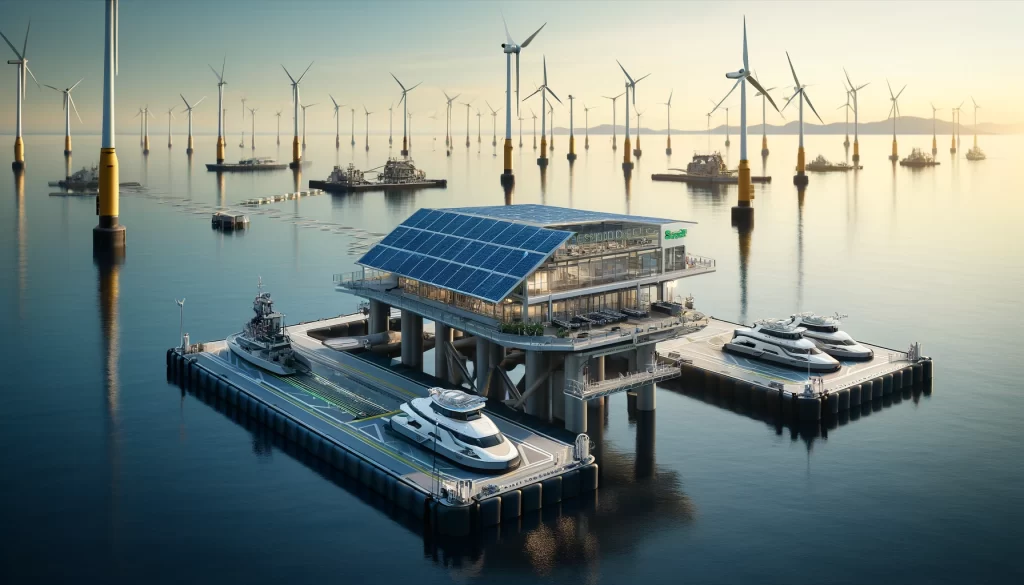Schneider Electric has become a pivotal player in a pioneering project to create a cold-ironing buoy, providing a groundbreaking solution for powering anchored ships with renewable energy.
Maritime Industry’s Green Transition
The maritime sector’s journey towards sustainability has reached a pivotal moment with Schneider Electric’s involvement in creating the first cold-ironing buoy for ships at anchorage. This innovative project, led by Orcades Marine Management Consultants, targets emission reduction for cruise ships in the Bay of Kirkwall, Orkney Islands. The initiative promises to significantly cut pollution from idling ships, enhancing coastal air quality.
Renewable Energy for Anchored Vessels
Cold ironing, the process of providing shoreside electrical power to a ship at berth, is set to be revolutionized by Schneider’s new buoy. This technology will harness renewable energy from wind, solar, and tidal sources to supply power to hybrid cruise ships. The UK Government’s Department for Transport has backed the project with approximately US$375,000, funding the initial stages, including a comprehensive feasibility study and front-end engineering design (FEED).
Project Development and Feasibility
The construction of the cold-ironing buoy will follow the completion of the FEED and feasibility study, which assesses the technical, economic, and social implications. Schneider Electric’s role extends to conducting a gap analysis and supporting the pre-FEED for the necessary infrastructure upgrades. The company will also contribute to evaluating the project’s feasibility and crafting a roadmap for the pilot demonstration.
Commitment to Sustainable Maritime Practices
Shaun Faulkner, Seaport Segment Lead at Schneider Electric, emphasizes the company’s dedication to advancing sustainable practices in the maritime industry. Schneider’s mission aligns with the growing demand for cleaner operations in ports and maritime sectors, aiming to demonstrate a viable path to a sustainable future.
Collaborative Effort for Innovation
The consortium, which includes Orkney Island Council Harbour Authority, GAC UK, and Aquatera, combines diverse expertise to address engineering, safety, harbor operations, and environmental considerations. The Bay of Kirkwall’s selection as the project site is strategic, given its status as a cruise ship hub and its track record of renewable energy production exceeding its electricity needs since 2013.
Captain David Thomson of Orcades Marine expresses enthusiasm for the grant and the project’s potential to eliminate carbon emissions from large vessels within port limits, marking a significant stride towards a cleaner maritime industry.



